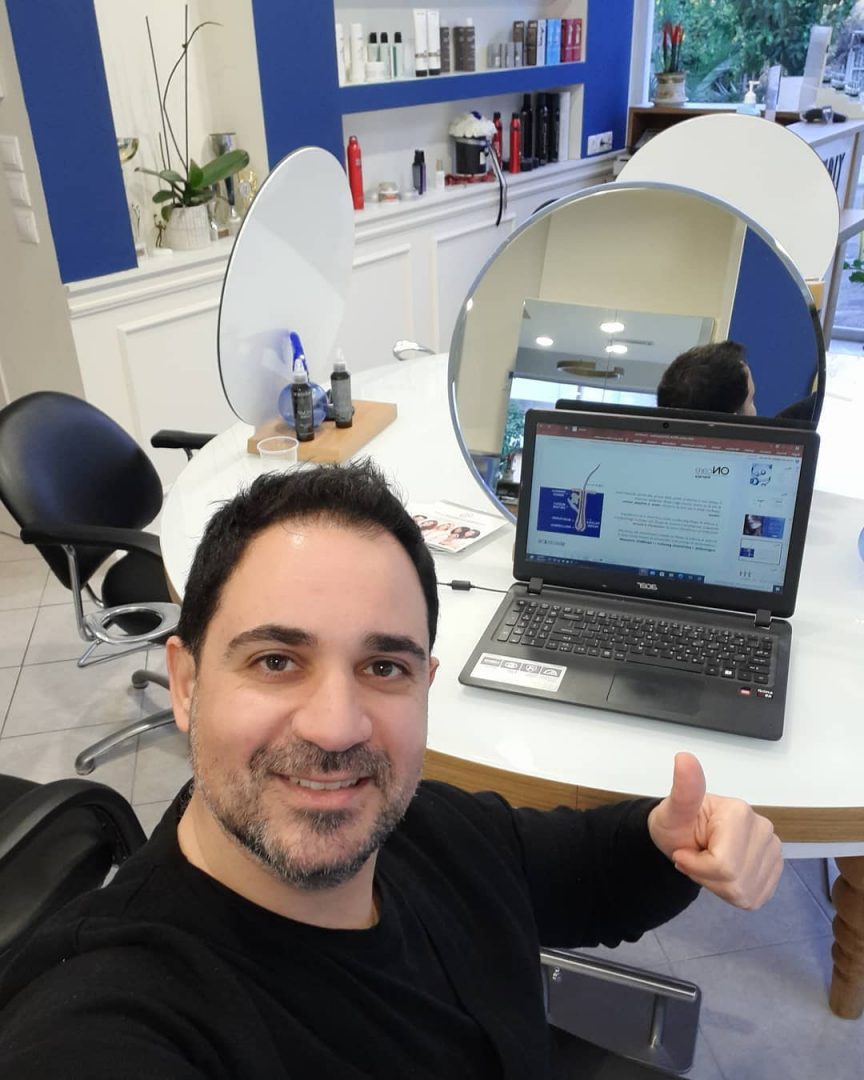The hair life cycle and hair loss.
Bullshit! We deal with them every day. We bathe them, comb them, pull them, caress them.
Our relationship often becomes erotic!
We try in every way to keep them strong and glowing.
But how well do we know them?
What is this notorious hair life cycle and how much does it affect hair loss?
The hair goes round and round and round…
Have you ever heard of the hair cycle? If not, we’ll put it in simple terms…
Each follicle in our head produces one to two hairs. These grow in successive cycles before their final fall.
The hair life cycle has three phases:
Regenerative phase (development phase)
This stage lasts from 2 to 6 years (it varies from men to women and from person to person).
It is the period of hair formation and growth.
Downstream phase (transitional phase)
This is a transitional period lasting about 3 weeks. At this stage, hair growth stops, allowing the root sheath to shrink so that the production of new bulbs can begin.
Telogen phase (resting phase)
In this phase the hair remains in the follicle even though it has stopped growing. It lasts about 3 months and at the end the hair falls out.
Fortunately, for all of us, only 10% of hair is in this phase.
Otherwise there would be periods when we would all be bald!
Hair loss at its best!
Really, I don’t even want to think about it!

Causes of hair loss
Environmental factors
The succession of these cycles can be influenced by various environmental factors such as seasonal hair loss. That’s why we notice every autumn that we lose more hair-like trees and we shed our leaves! Indeed, here we see clearly how the hair life cycle affects hair loss.
Our kind!
Another reason is heredity. Indeed, genes determine whether we will experience hair loss at some point in our lives, according to scientists. Genetic predisposition plays a decisive role in 90% of men and 60% of women. In men it usually starts at a younger age than in women. It is inherited from either the father or the mother.
Nutrition
Adopt a diet that is rich in antioxidants, protein and vitamins. Mineral water is also very important, since apart from the healthy and safe hydration we offer our body, we provide it with valuable minerals such as magnesium, iron and calcium. Make sure that the life cycle of the hair is not affected by your wrong diet. Do I have to tell you everything?
Hormones
Hormonal imbalances and increased testosterone cause hair thinning. Even after childbirth we notice a strong hair loss. Of course, the surge of estrogen during pregnancy is the cause of this phenomenon. But then they fall off abruptly, like the hair. So we understand that here the life cycle of the hair is affected the most!
Now that you’ve learned 5 more things about your hair, be mature. Without stress, deal with the hair loss you may experience at some point in your life. Ask your hairdresser for advice and pay a visit to the dermatologist to be guided on ways to treat your hair so that it stays luscious forever.

